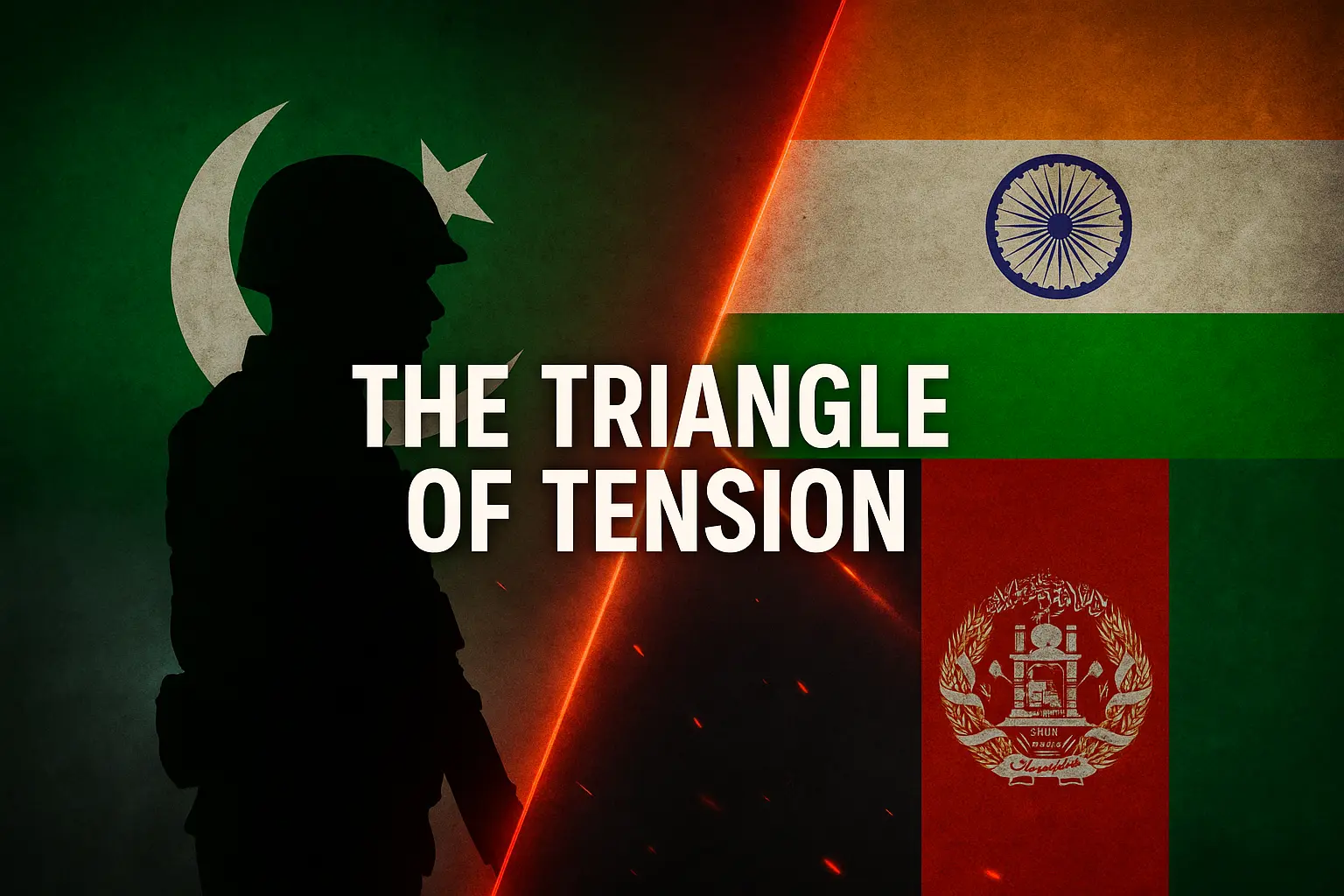Honestly, South Asia hasn’t seen a week this tense in years.
Pakistan’s Defence Minister Khawaja Mohammad Asif has just sent a message that echoed far beyond the Durand Line.
He warned that Pakistan
would not hesitate to launch “deep strikes inside Afghan territory” if militants hiding in Afghanistan continued attacking Pakistani forces.
“If our patience is mistaken for weakness, they are wrong,” Asif said. “Pakistan will respond wherever the threat emerges — even if it lies beyond the border.”
That single line shook diplomatic circles. But behind it lies a bigger story — one involving India’s quiet re-entry into Kabul, shifting loyalties, and Islamabad’s growing frustration with both its neighbor and its former ally, the Taliban.
Pakistan’s Alarm: It’s More Than Border Clashes
People often think the Pakistan-Afghanistan tension is just about gunfire at the border. The truth is, it runs much deeper.
1. Cross-border attacks are back
Over the past few months, Pakistan has seen a surge in attacks blamed on the Tehrik-e-Taliban Pakistan (TTP) — a group operating from Afghan soil. Each incident has pushed Islamabad closer to the edge.
When Asif says “enough is enough,” he’s referring to these persistent strikes that kill Pakistani soldiers and civilians while the Taliban looks the other way.
2. Talks have failed
Peace meetings in Doha and Istanbul were meant to cool tensions. Instead, they ended in deadlock. Asif admitted the discussions were “non-productive” and warned that “Kabul’s words mean little without action.”
In short: Pakistan’s patience is wearing thin, and the military option is no longer off the table.
India’s Growing Shadow in Kabul
While Pakistan struggles to make the Taliban listen, India is quietly rebuilding its space in Afghanistan.
It has reopened its diplomatic mission in Kabul, stepped up humanitarian aid through Iran’s Chabahar Port, and resumed discreet back-channel meetings with Taliban officials.
Many in Pakistan’s defence and intelligence circles believe this isn’t just about goodwill. They see it as part of a broader Indian strategy to regain lost ground after its setback in the 2025 Operation Sandoor conflict.
As analysts put it, India is still licking its wounds, and Prime Minister Modi’s government — facing growing domestic criticism — can’t risk another direct clash with Pakistan.
Instead, India appears to be playing a longer game: using influence and partnerships in Afghanistan to pressure Pakistan indirectly. It’s a quiet war — fought not with tanks, but through diplomacy, trade routes, and media messaging that gradually tilt the region’s balance.
Simply put, India may not be fighting Pakistan on the battlefield, but it’s trying hard to win the influence war from the sidelines.
What Defence Minister Asif’s Warning Really Means
When Khawaja Asif speaks of “deep strikes”, it isn’t just rhetoric.
It’s a message to the Taliban — and indirectly to India — that Pakistan is ready to defend its sovereignty, even beyond its borders.
“We cannot allow our soldiers and civilians to be killed by terrorists enjoying safe haven across the border,” he declared.
This signals a clear policy shift: Pakistan will act unilaterally if diplomacy fails. It also reminds regional powers that Islamabad sees the Afghan border not just as a line on a map but as a red line for national security.
Why Pakistan Feels Cornered
🔥 Security Pressure
If Afghan-based groups continue to attack Pakistan, the military will face a long, draining counter-insurgency on two fronts — external and internal.
💡 Strategic Depth Lost
For decades, Pakistan relied on influence in Kabul to balance India’s reach. That “strategic depth” is fading as India builds new ties with the Taliban.
🚧 Economic Leverage Eroding
With India and Afghanistan developing trade routes that bypass Pakistan, Islamabad’s transit advantage is shrinking — and with it, regional influence.
Pakistan’s Possible Next Moves
1.Tighten Border Control: Increase drone surveillance, radar fencing, and joint patrols with tribal communities.
2.Diplomatic Coordination: Work with mediators such as Qatar, Turkey, and China to pressure Kabul into concrete anti-terror steps.
3.Information Warfare: Build and publicize a transparent dossier on cross-border infiltration to strengthen Pakistan’s narrative globally.
4.Economic Response: Reinforce regional trade with Iran and Central Asia to counterbalance Indian routes.
5.Strategic Communication: Use consistent messaging — not emotional outbursts — to keep international opinion aligned with Pakistan.
In my experience, consistency matters more than loudness. Pakistan’s credibility grows when its facts are clear and its reactions measured.
FAQs
Q: Does this mean war is coming?
Not necessarily. Pakistan’s statement is a warning — a diplomatic signal backed by military resolve. The aim is deterrence, not escalation.
Q: Why is the Taliban drifting from Pakistan?
Experts say the Taliban now seeks broader legitimacy and financial support. India and Gulf countries offer both — something Pakistan can’t match alone.
Q: Is India directly arming the Taliban?
There’s no verified proof of that. But India’s political engagement and aid programs indirectly increase its leverage in Kabul.
Q: What’s at stake for Pakistan if this continues?
Border instability, rising militancy, loss of trade leverage, and growing Indian influence — all of which threaten national security.
Summary & Call-to-Action
Pakistan’s warning isn’t empty talk. It reflects a new phase in regional power politics where security, pride, and perception collide.
India’s renewed presence in Kabul, the Taliban’s silence on TTP attacks, and Islamabad’s tough stance are all threads of the same complex web.
For Pakistan, this is no longer just about defending the border — it’s about defending regional balance.
And for the world, it’s a reminder that the future of South Asia may again hinge on what happens between Islamabad, Kabul, and New Delhi.
This article will be updated regularly with verified developments and fresh insights.


